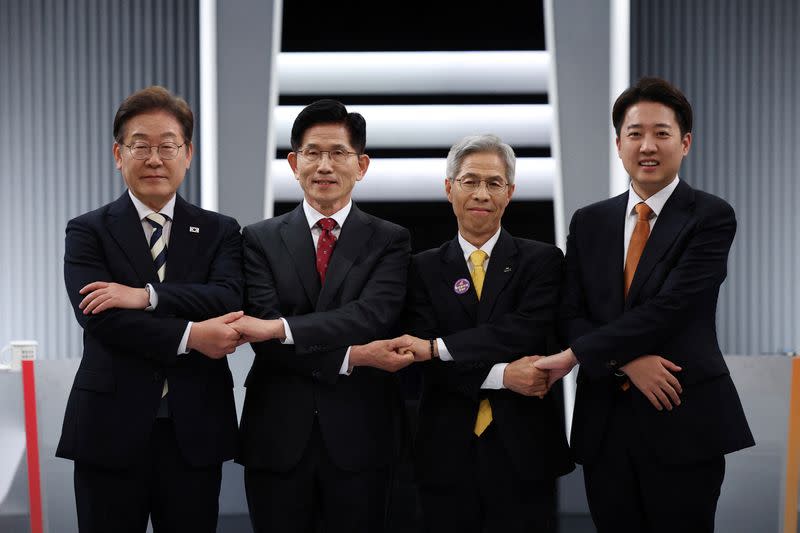South Korea is facing a major political crisis after the country’s former president was removed from office.
Historic Decision Sparks a National Debate
This happened after he announced a sudden martial law in December. The shock of this decision led to his impeachment and a snap presidential election, scheduled for June 3.
Now, people from all sides of politics are asking for a big change—changing the rules that define the president’s powers. This movement has caught fire, with both major political parties and the general public discussing how the country’s leadership should work in the future.
The constitution of South Korea was last changed in 1987. That change allowed citizens to vote directly for the president and limited the leader to one five-year term. Since then, many people have wanted more changes, but none have happened. After the chaos caused by the martial law decision, the demand for change has become stronger than ever.
Polls show that most South Koreans want reform. A recent survey revealed that 67% of people support changing the system that defines the president’s power. Only 21% said they do not think it’s necessary.
Plans to Reduce Power and Increase Fairness
Many leaders running in the upcoming South Korea election have promised to reform the constitution. These promises include cutting down the president’s power and sharing it with other government branches, like the parliament.
One top candidate in South Korea has suggested that future presidents should be allowed to serve for four years and be able to run for a second term. He also wants elections to include a second round of voting when no candidate wins over 50% in the first round. This would ensure that the winner has the support of more people.
Another candidate from the main rival party has also proposed big changes. He agrees that the president should be allowed to serve two four-year terms. But he also went a step further by saying he would reduce his own term to only three years. His goal is to match South Korea’s presidential elections with general elections starting from 2028. He even said that if he wins, he would remove the rule that protects a sitting president from being prosecuted during their term.
These ideas are not new in South Korea. Over the years, many leaders from different parties have supported similar reforms. But in most cases, once they were elected, these plans were forgotten. This time, however, the pressure from the public and the fallout from the martial law order have brought the issue back to the center.
South Korea on High Alert After North Korea Launches Missiles and Sends 15,000 Troops to Russia
Push and Pull Between Unity and Politics
The push to change the constitution has not been easy. Earlier this year, there was a proposal to hold a public vote on constitutional changes on the same day as the presidential election. But the idea was turned down by one of the leading candidates, who said that fixing the country’s political situation was more important at the time.
Some criticized this decision, saying it avoided taking real steps toward change. Supporters of the idea argued that it was better to wait and allow the next president to focus on building national agreement before making such an important move.
There has been clear tension between the two main candidates. One side believes that reform should be a top priority and should happen quickly, even if it means cutting short the next president’s term. The other side believes that the new leader must first focus on making the country stable again, especially after the damage done by the martial law announcement.
Still, both candidates seem to agree that the current system needs improvement. They both support the idea of a four-year, two-term presidency for future leaders and want to reduce the huge amount of power held by one person. They also agree that the role of parliament should be strengthened by giving it more say in choosing the prime minister.
Experts watching this situation say that this might be the best chance South Korea has had in decades to make real changes. The combination of public support, political will, and the recent crisis has pushed the issue to the front of the national conversation.
For now, South Koreans are waiting for the June 3 election. What happens next will depend on who is elected and how seriously they take their promises to reform the presidency. The events of the past months have shown that the country is ready for a fresh look at how power should be handled at the very top.
